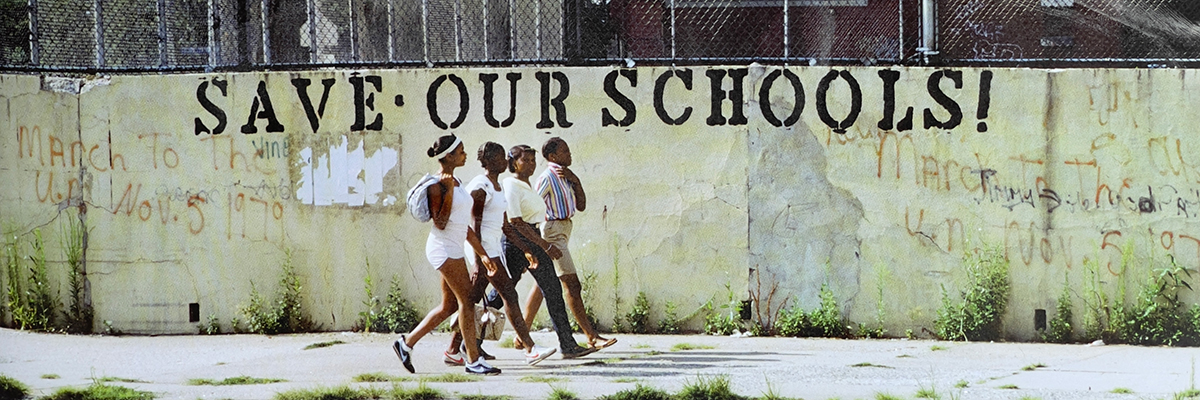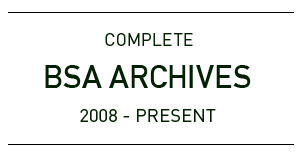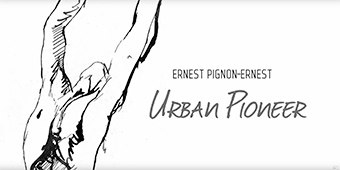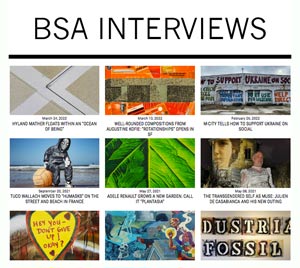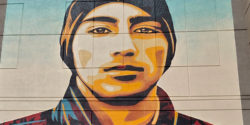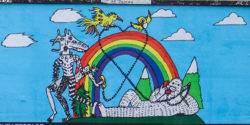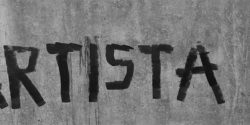One of the exciting book releases this fall drops today in stores across the country – which is appropriate with a name like Spray Nation.
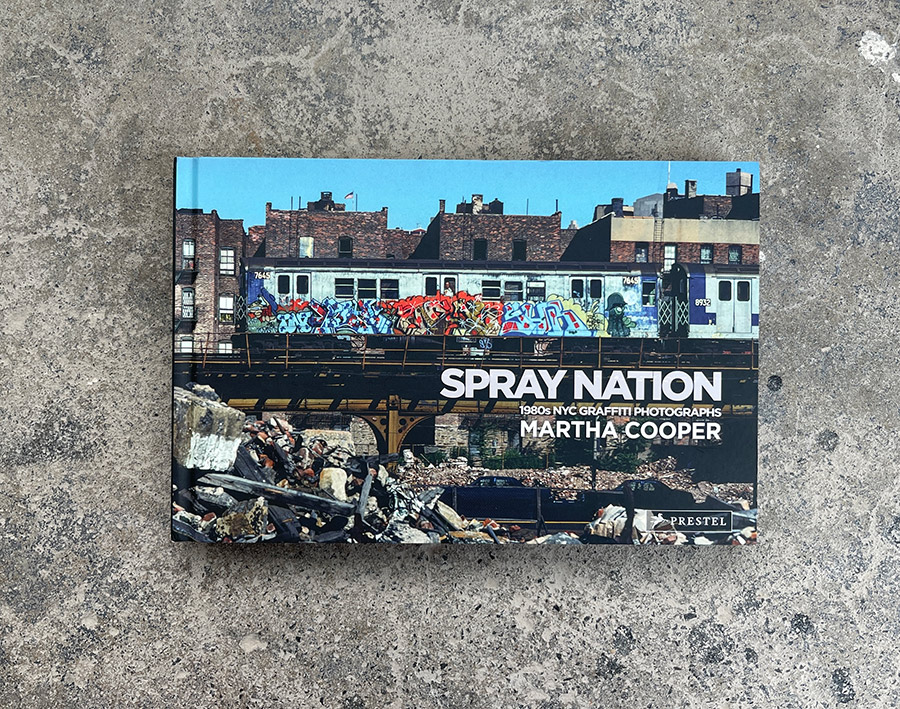
The centerpiece of the complete boxed set released this spring, this thick brick of graffiti tricks will end up on as many shelves as Subway Art; the book of Genesis that prepared everyone for the global scene of graffiti and street art that would unveil itself for decades afterward. See our review from earlier in the year, and sample some of the stunning spreads here, along with quotes by the book’s essay writers, Roger Gastman, Steven P. Harrington, Miss Rosen, Jayson Edlin, and Brian Wallis.
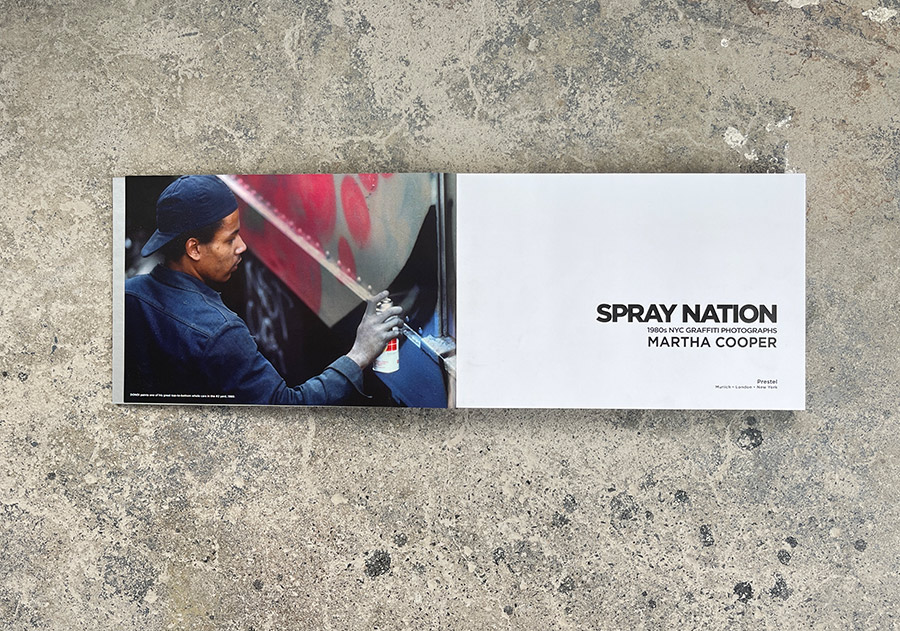
“Culled from thousands of her Kodachrome slides from the early 1980s, the celebrated photographer and ethnologist worked with American graffiti historian Roger Gastman over many months during the initial Covid period to select this rich collection of images of tags, walls, and pieces. Each turn of the page more profoundly deepens your understanding of the graffiti-writing culture Cooper captured with Henry Chalfant in their book Subway Art nearly forty years ago. That clarion call to a worldwide audience took years to reverberate and shake culture everywhere. With time that book became the standard root documentation for what many see as the largest global democratic people’s art movement in history.”
“To create Spray Nation, Cooper, and editor Roger Gastman pored through hundreds of thousands of 35mm Kodachrome slides, painstakingly selecting and digitizing them. The photos range from obscure tags to portraits, action shots, walls, and painted subway cars. They are accompanied by heartfelt essays celebrating Cooper’s drive, spirit, and singular vision. The images capture a gritty New York era that is gone forever.”
~ Prestel Publishing
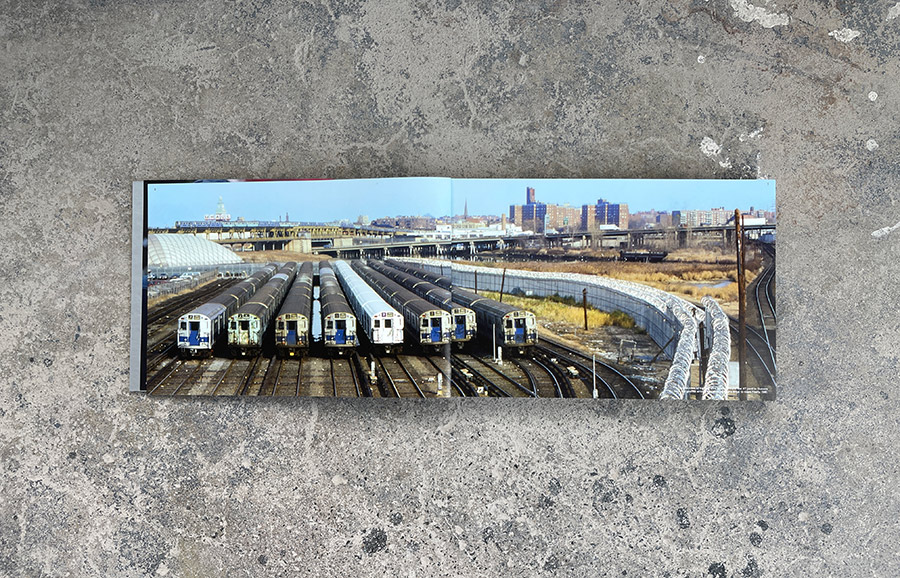
“Martha’s photos have backed up graffiti writers’ tall tales more times than I can count. They’re like this crazy high school yearbook. As a result, Cooper is who every graffiti writer, fan, collector, and researcher wants to come and see. Most of them have not had the privilege of going to her studio and seeing the great amount of work she has amassed over the years – it’s truly awe inspiring. But every so often she pulls out yet another gem where we all scratch our heads and think, “Oh shit, what else is Martha holding?”
Roger Gastman, from the Foreward of Spray Nation

“‘If you want to publish your work, you cannot be ahead of or behind your time,’ she says as she reflects on an impeccable sense for capturing the birth of scenes like graffiti, hip-hop, and b-boying. ‘I was lucky to be at the right place and time.’”
“Martha is heralded today for capturing those trains and scenes along with Henry Chalfant in the seminal graffiti holy book Subwav Art, but few appreciate how painfully ahead of their time they were at that point.”
~ Steven P. Harrington, from Who is Martha Cooper?
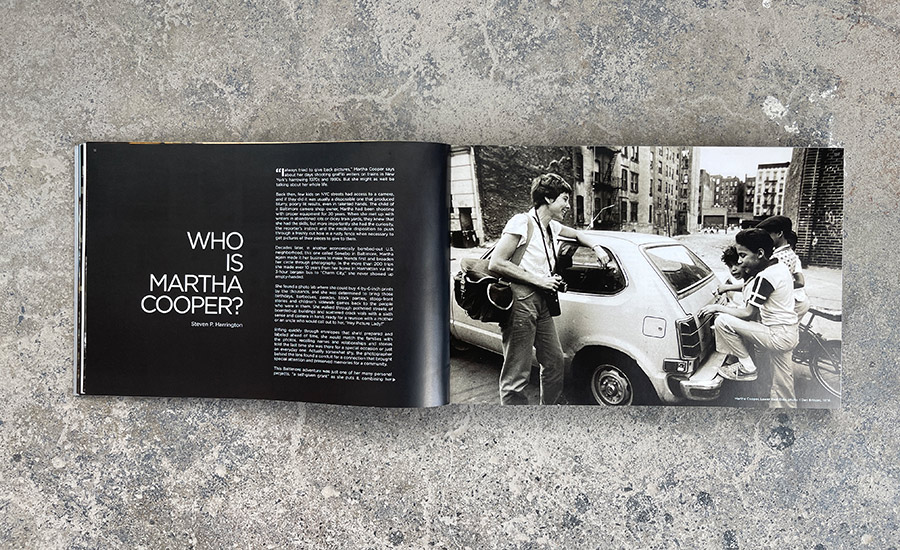
“With a single snap of the shutter, Martha Cooper captured the searing rush of seeing a whole car make its debut on the line after being painted all night. You can all but hear the train thunder along the tracks and feel the ground rumble beneath your feet while a gust of wind hits your face. Is that the smell of spray paint?”
~ Miss Rosen, from Better Living Through Graffiti
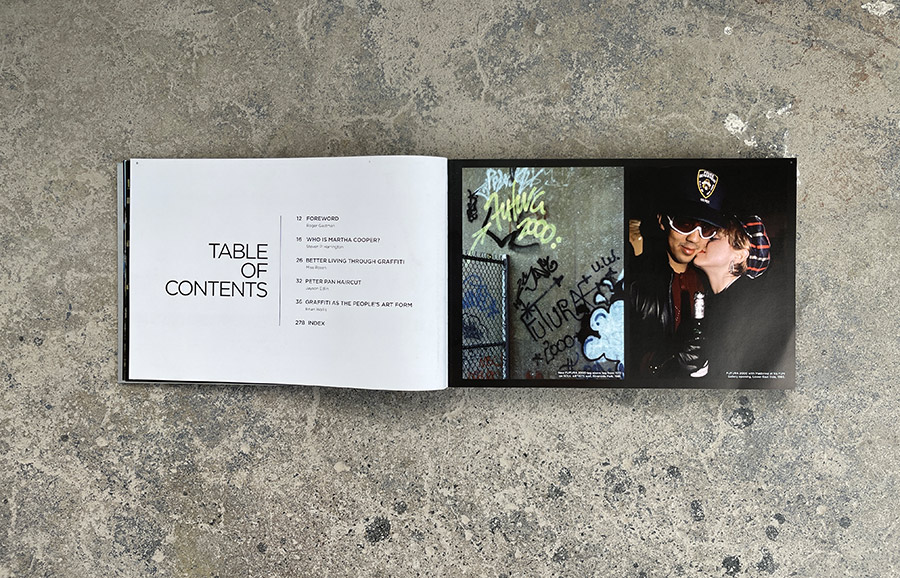
“Martha took pictures of painted trains and b-boys because few bothered to at that time. Once people caught on, she considered her task completed. Martha followed the paint trail as it rose above ground. QUiK and IZ on the streets with Scharf and Hambleton. Madonna clubbing with Basquiat, Patti Astor with DONDI and FAB 5 FREDDY. Subway graffiti gradually died, street art rising from its ashes. Disinterest, drugs and AIDS decimated NYC’s cultural apex, its brightest stars perishing before their work hit the seven-figure mark – lives as ephemeral as our pieces on the train. These fleeting moments of births, peaks, and deaths live in perpetuity thanks to the foresight of Martha Cooper and a handful of others who tracked cool’s scent like underground bloodhounds.”
Jayson Edlin, from Peter Pan Haircut
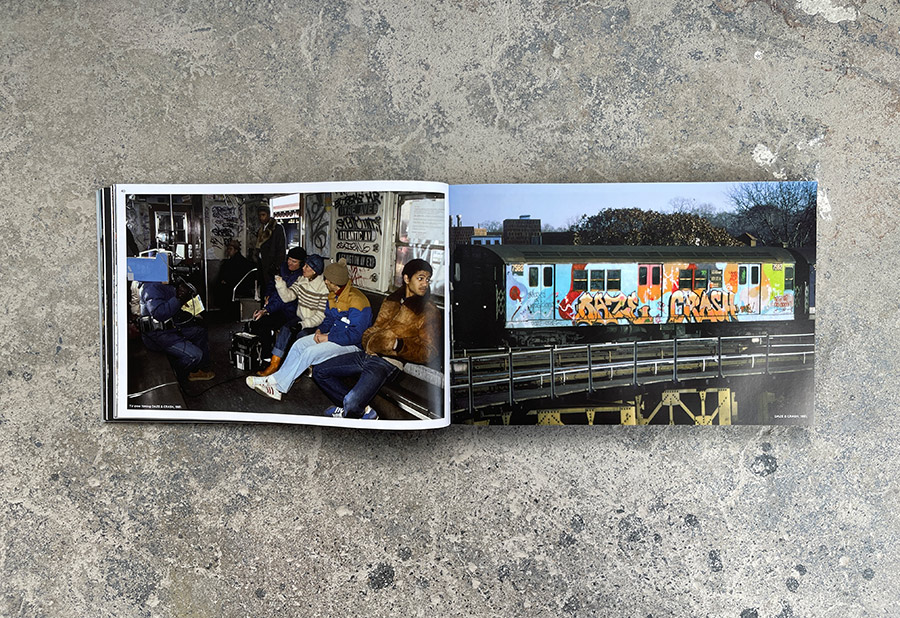
“In a sense, Cooper’s photography picks up on the New Documentary approach of the early 1970s, in which independent photographers such as Larry Clark, Susan Meiselas, Jill Freedman, Mary Ellen Mark, and Danny Lyon recorded insider’s views of various closed societies of outsiders, social groups and “others” shoved aside by postwar American society in thrall to consumerism. The alienated drug users, prisoners, bikers, and prostitutes that those photographers lived among and depicted were largely invisible and had been further marginalized in America by class, race and gender prejudices. In a similar vein, Cooper sought to expose and legitimize the young subway writers as earnest and mildly rebellious artists with a purpose and a rational aesthetic agenda, rather than as the lawless urban vandals the police and the media sought to represent.”
~ Brian Wallis, from Graffiti As The People’s Art Form
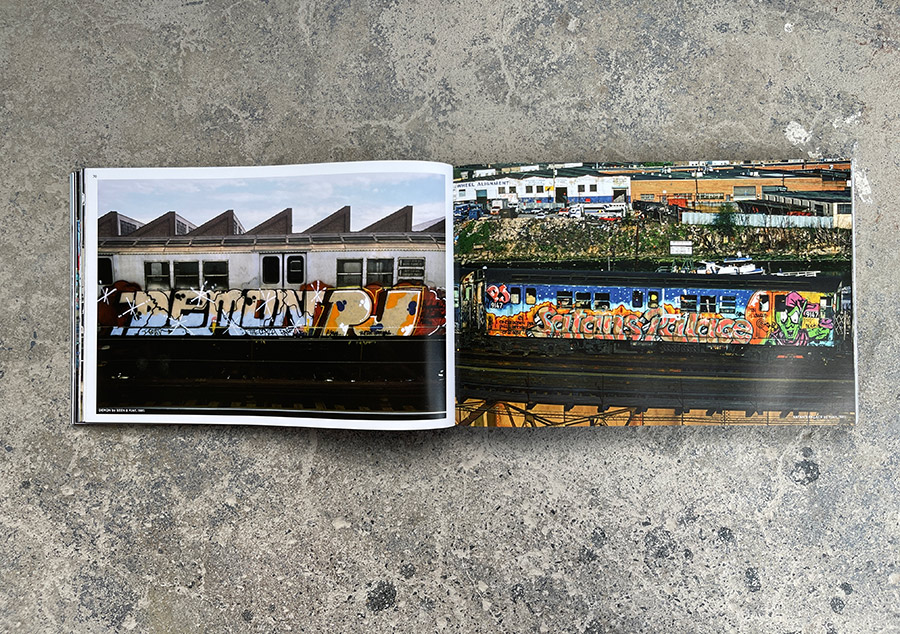
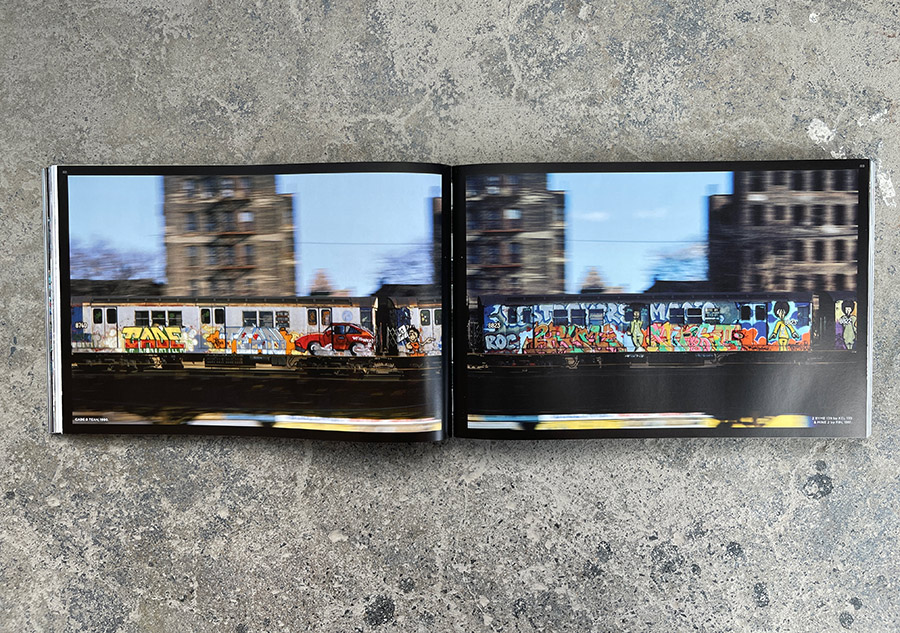
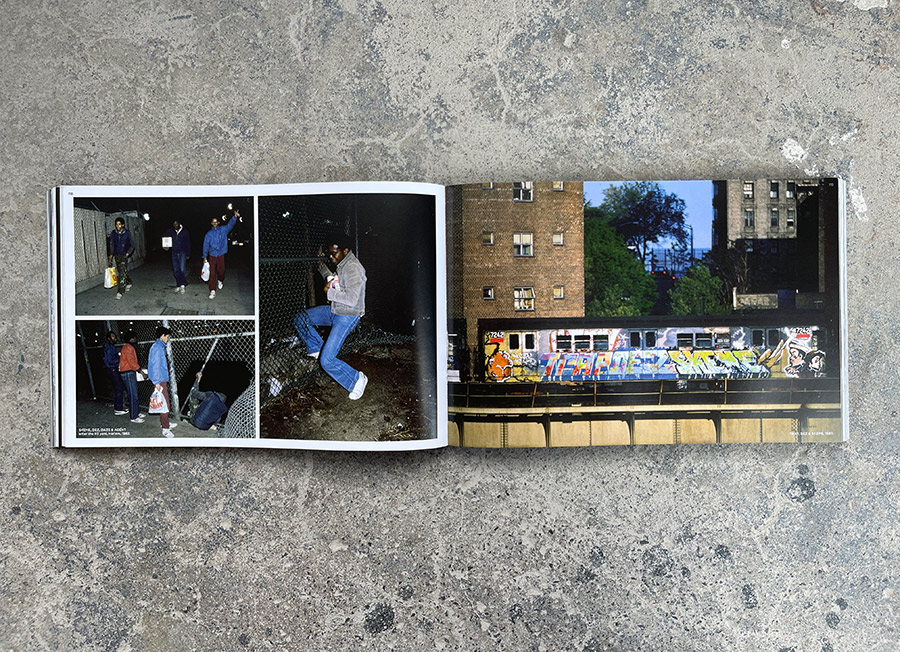
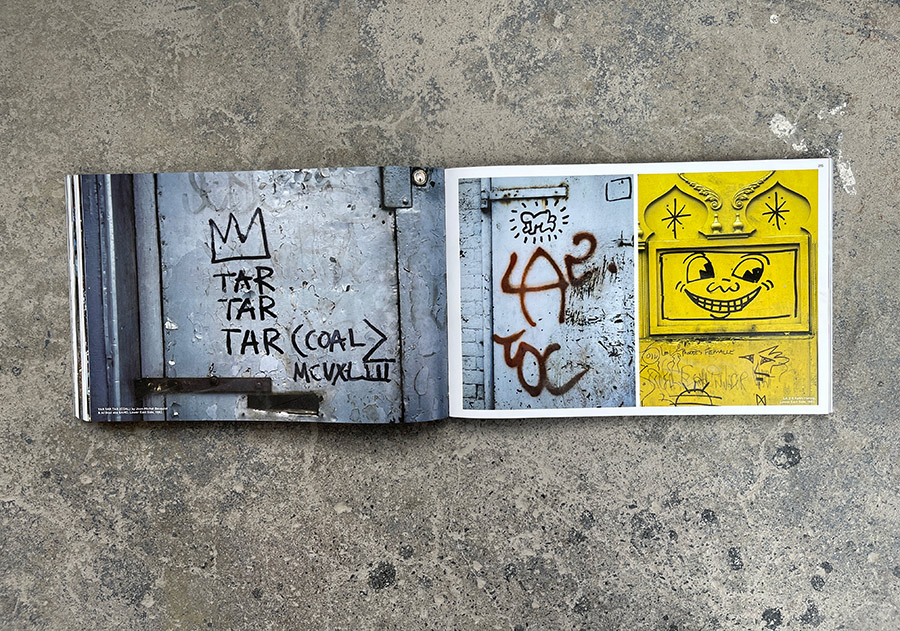

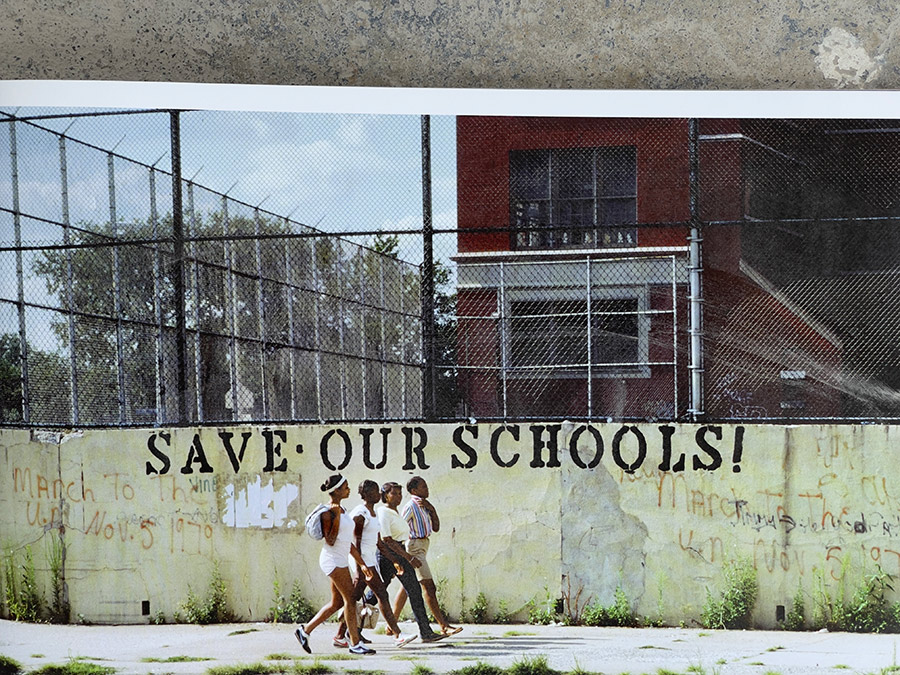
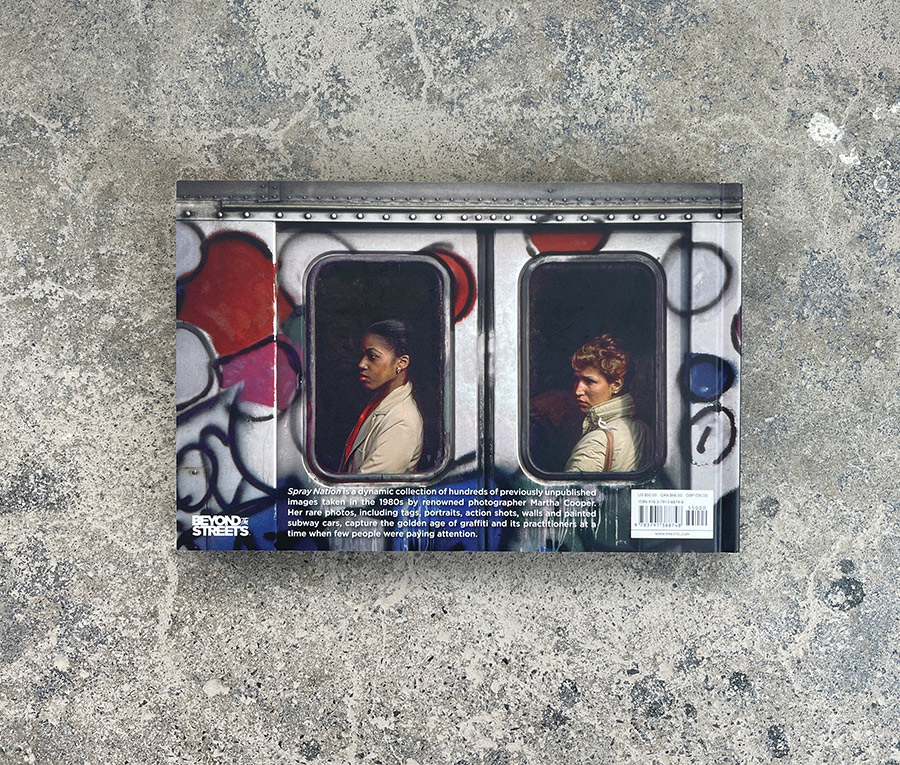
Other Articles You May Like from BSA:
This week BSA is in Madrid to capture some highlights on the street, in studio, and at Urvanity 2019, where we are hosting a 3 day "BSA TALKS" conference called "How Deep Is the Street?" Come wit...
Oh death, the world simply brims with it. Naturally so do the streets. We’ve been able to cheat it, cavort and dance with it, even bargain with it but so far we have been unable to win the fight. Ev...
Our weekly focus on the moving image and art in the streets. And other oddities. Now screening : 1. 1Up X Hand Mixed - "Love is Love"2. WK Interact x Kobe Bryant3. Bordalo II in Studio ...
475 Kent for Sale! Actually, it already sold to real estate developers a year ago - Roughly 20 years after an active artist community brought this nearly abandoned old pasta factory to l...
It comes as no surprise that the explosion of new graffiti in New York is evident across the river in Jersey City, where we have been hanging out the last few day for the Jersey City Mural Festiv...
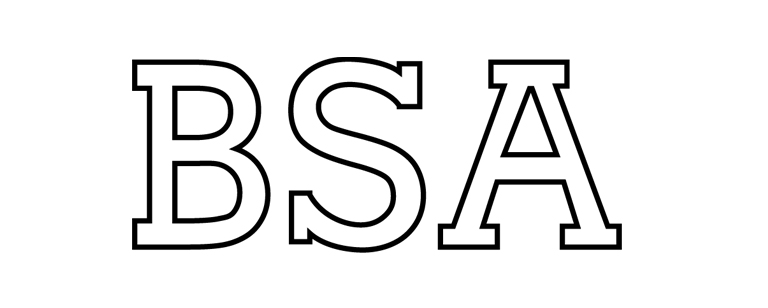 BROOKLYN STREET ART LOVES YOU MORE EVERY DAY
BROOKLYN STREET ART LOVES YOU MORE EVERY DAY